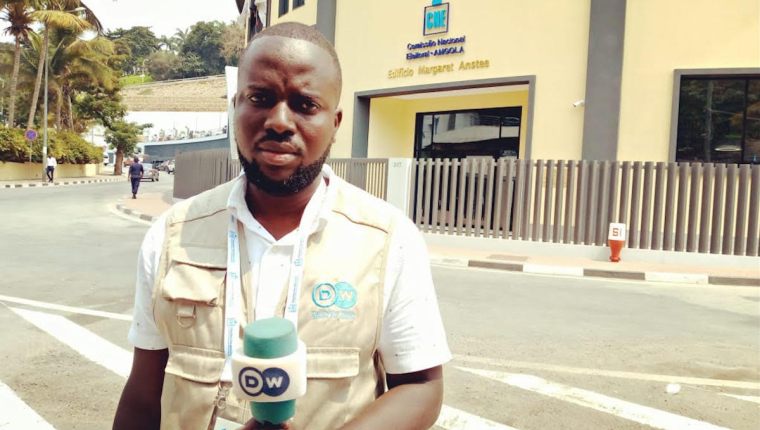Borralho Ndomba, a correspondent for German public broadcaster Deutsche Welle (DW) in Angola, was briefly detained by police on October 8, 2022, while covering a student demonstration in the capital, Luanda, according to reports by DW and U.S. Congress-funded Voice of America, a statement by DW that was reviewed by CPJ, and the journalist, who spoke to CPJ via messaging app.
Police confiscated Ndomba’s cellphone and wallet, shoved him under the seat of a police van for at least half an hour, and took him to a police station for another hour before being released without charge, according to those sources.
Ndomba told CPJ that, while wearing his press vest, he was interviewing two students on Facebook Live when around 12 police officers on motorcycles approached. Ndomba said an officer forced him to stop filming and demanded that he erase the footage, claiming the demonstration was not authorized and illegal. Ndomba refused and showed the officer his press card, but was still detained, he said.
The demonstration was organized by students protesting against discrimination, after some of the students had been removed from class because of their Afro hairstyles, according to a DW report.
Ndomba said he was detained with about 14 students who remained at the police station after he was released, some of whom he said were clearly minors.
Ndomba said he overhead an officer saying he should be released “to avoid controversy.”
In a statement, DW spokesperson Christoph Jumpelt urged authorities to put a stop to arbitrary police actions against accredited journalists. He said this was the third incident involving DW journalists in less than two months in Angola, including the brief detention of a correspondent and abduction of a media worker during the August 2022 elections in the country.
On October 12, Interior Minister Eugénio Laborinho said after a meeting with the Union of Angolan Journalists that he regretted the recent restrictions on journalists’ activities but urged journalists to better identify themselves, according to news reports.
Reached by phone, Luanda police spokesperson Nestor Goubel hung up the phone after hearing CPJ’s request for comment and did not answer subsequent calls or messages via messaging app.
In 2020, following the detention of at least six journalists while covering a demonstration in Luanda, President João Lourenço publicly apologized, yet CPJ has since documented the detention of other journalists by police clamping down on demonstrations, including during the run-up to the recent elections.
